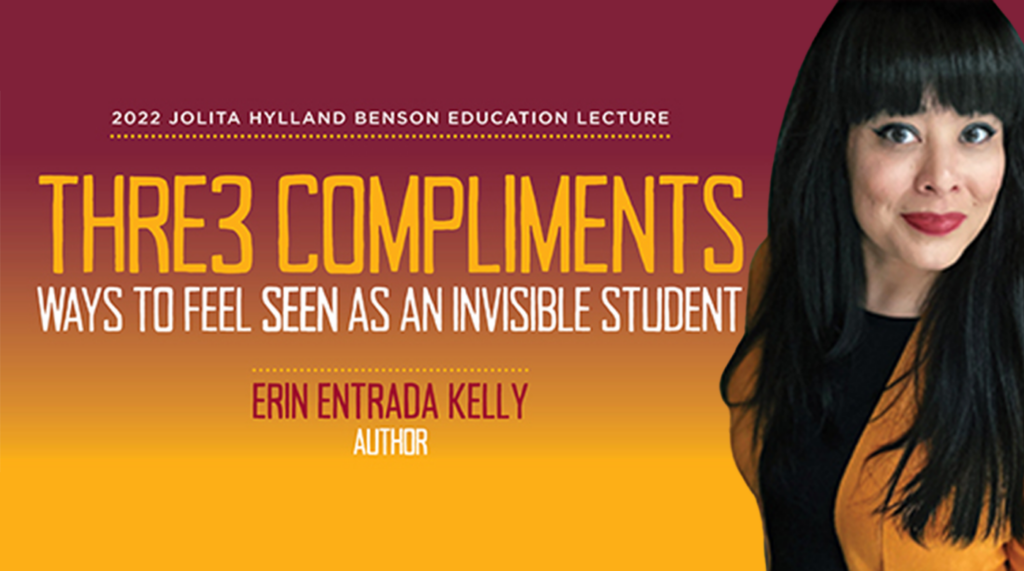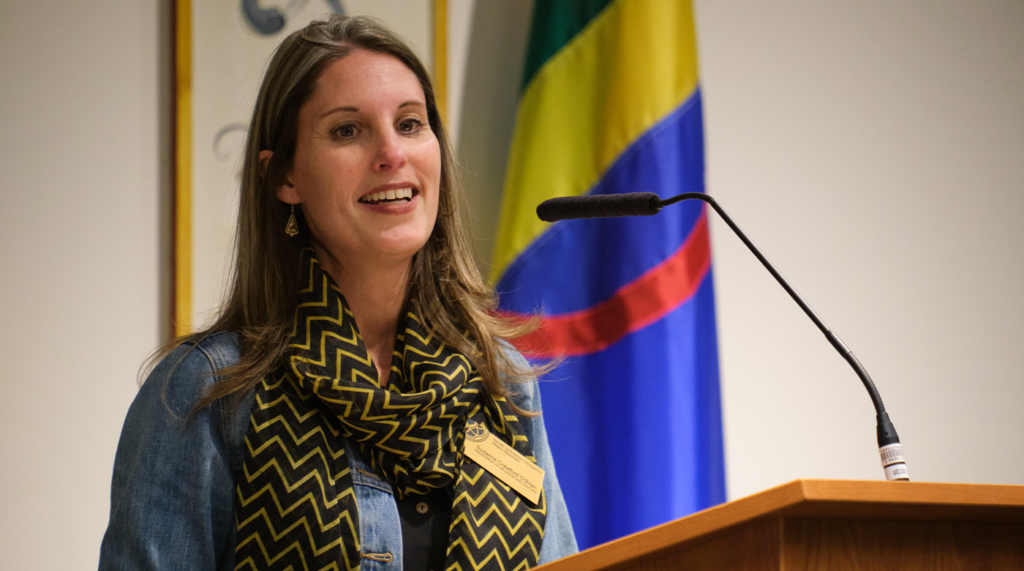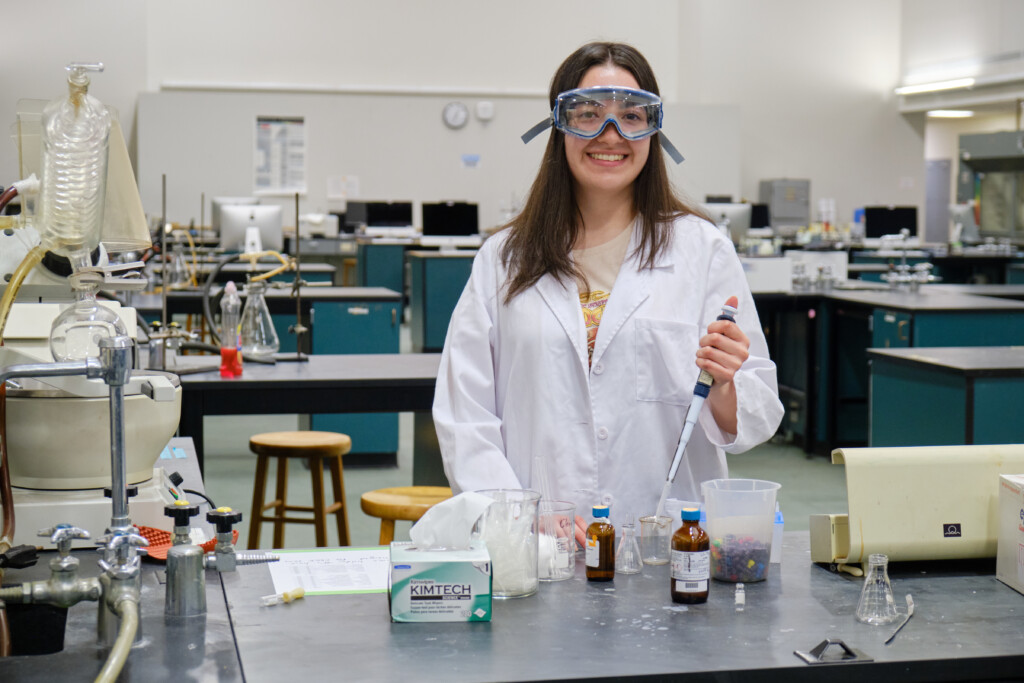Page 8 • (175 results in 0.062 seconds)
-

Pacific Lutheran University’s 12th Annual Jolita Hylland Benson Education Lecture will take place April 20 at 7 p.m. Erin Entrada Kelly, a Newberry Medalist and New York Times best-selling author, will deliver this year’s Benson lecture titled, Three Compliments: Ways to Feel Seen as an…
, and finding your voice.” Entrada Kelly has been honored numerous times for her work, including the 2021 Newbery Honor for We Dream of Space, the 2018 Newbery Medal for Hello Universe, and the Asian/Pacific American Award for Literature for The Land of Forgotten Girls. Her newest book, Those Kids from Fawn Creek, will be released in March 2022. Netflix acquired Hello Universe. Her work is globally celebrated and has been translated into several languages. Entrada Kelly has a bachelor’s degree in
-
By Zach Powers & Mandi Brady PLU Marketing & Communications and the School of Arts and Communication Charlotte’s Web, the timeless story about the unbreakable friendship between an affable pig and a courageous spider, will be produced on stage next week at Pacific Lutheran University.…
life more meaningful, and I think that is an important message to pass on to children.” Helton says his Children’s Literature minor has encouraged him to look deeper into the meaning of stories and that he was struck by the thematic depth of Charlotte’s Web. “Most children’s books do not deal with death, and Charlotte’s Web handles it so delicately,” Helton says. “During my studies, I came to the realization that children need an outlet to deal with loss and this story can help with that.” Helton
-
Clean Energy Bridge to Research (CEBR) is a summer program run by the University of Washington (UW) Clean Energy Institute (CEI) and Undergraduate Research Program, and funded by the National Science Foundation (NSF CHE-1950904). The CEBR Research Experience for Undergraduates (REU) program supports a select group of undergraduates, community…
necessary to succeed in industry and academia. Students are generally exposed to a variety of research activities which may include literature search, experimental design, bench work and lab notebook management, mathematical modeling, instrumental characterization, computer/software control and analysis, lab safety, as well as communication, organizational and interpersonal skills. Program Dates Application Open: December 14, 2021 Application Deadline: February 15, 2022 Program: Week of June 20 – August
-

If you’re a fan of romantic comedies and a good tune, She Loves Me is just the thing for you. Pacific Lutheran University’s spring musical opens Friday, May 13 in Eastvold Auditorium in the Karen Hille Phillips Center for the Performing Arts. The musical, set…
person get under my skin? Why do I not like her? Why do I not like him? The reason is because I do like them so very much, but I do not have the tools to tell her/him. That coupled with the idealized love of literature makes for some good conflict.” The story line is classic and simple. Clapp intends to let the story evolve naturally and unfold as it has so many times before. “It is sentimental, funny and at times a bit cheese ball. For me, that is enough,” Clapp describes. The multiple locations
-

TACOMA, WASH. (May 4, 2020) — Five dynamic new weekly shows headline PLU Community YouTube, a new venture that leverages original programming to showcase the uniquely interpersonal values and tight-knit culture of the Lute family — even in this time of physical distancing. The shows…
Home, Stay Healthy.” The show is centered on a topic from a book or other children’s literature that connects with each week’s channel theme. Warm Line, hosted by PLU Pastor Jen Rude, centers the spiritual well-being of our PLU community through topics of faith and spiritual community, interpretations of and opportunities for service, and so for. Diversity Deep Dive, hosted by Associate Vice President for Diversity Justice, and Sustainability Angie Hambrick and Dean of Inclusive Excellence Jennifer
-
If you’re a fan of romantic comedies and a good tune, She Loves Me is just the thing for you. Pacific Lutheran University’s spring musical opens Friday, May 13 in Eastvold Auditorium in the Karen Hille Phillips Center for the Performing Arts. The musical, set…
person get under my skin? Why do I not like her? Why do I not like him? The reason is because I do like them so very much, but I do not have the tools to tell her/him. That coupled with the idealized love of literature makes for some good conflict.” The story line is classic and simple. Clapp intends to let the story evolve naturally and unfold as it has so many times before. “It is sentimental, funny and at times a bit cheese ball. For me, that is enough,” Clapp describes. The multiple locations
-
Clean Energy Bridge to Research (CEBR) is a summer program run by the University of Washington (UW) Clean Energy Institute (CEI) and Undergraduate Research Program, and funded by the National Science Foundation (NSF CHE-1950904). The CEBR Research Experience for Undergraduates (REU) program supports a select group of undergraduates, community…
necessary to succeed in industry and academia. Students are generally exposed to a variety of research activities which may include literature search, experimental design, bench work and lab notebook management, mathematical modeling, instrumental characterization, computer/software control and analysis, lab safety, as well as communication, organizational and interpersonal skills. Program Dates Application Open: December 14, 2021 Application Deadline: February 15, 2022 Program: Week of June 20 – August
-

A New Chapter for PLU’s Rainier Writing Workshop The new director of PLU’s Rainier Writing Workshop, Associate Professor of English Rick Barot. (Photo courtesy of Rick Barot.) Rick Barot Named New Director as Innovative MFA Program Turns 10 By Sandy Deneau Dunham PLU Marketing &…
think the value of literature and writing is even more paramount as we move forward, because it’s acting as kind of a resistance to forces in our culture that want to reduce or simplify experience,” Barot said. “What literature does is restore complexity to the things that people feel and do and think, and celebrate complex emotional, social, intellectual experiences.” As for the future of the Rainier Writing Workshop, Barot looks backward and forward, always with the founders’ vision—and
-

At PLU, we’re building up the next generation of Lutes — ones who will be called to lead us into an uncertain future. On Bjug Day you joined together in ensuring students are fully equipped to answer that call. Despite navigating a global pandemic, we…
year really motivated both students and faculty, and we were able to bring that motivation into the classroom through applied projects. Faculty were able to bring these issues into discussions of literature, history, philosophy, ethics, and environmental equity. How have faculty, staff and students responded to that challenge? I’m continually amazed at how my colleagues pivoted so quickly to online classrooms, how they spent the entire summer learning very different kinds of pedagogies and
-

As a child, chemistry major Yaquelin Ramirez ’22 often went to work with her mother at a Federal Way nursing home. The time spent watching her mom help the residents sparked something inside of her — a desire to pursue a career where she helps…
goal of becoming a medical professional who can help those in need, just like her mother did when she was a child. Read Previous Musician turned math major is excited to teach in his community Read Next History and literature senior aspires to be a lifelong learner LATEST POSTS PLU Scores 4.5 out of 5 on Campus Pride Index: What does that mean? November 21, 2024 YouTube Short: A quick campus tour and Lute lingo with Zari Warden November 19, 2024 Major Minute Monday: Global Studies November 18, 2024
Do you have any feedback for us? If so, feel free to use our Feedback Form.


